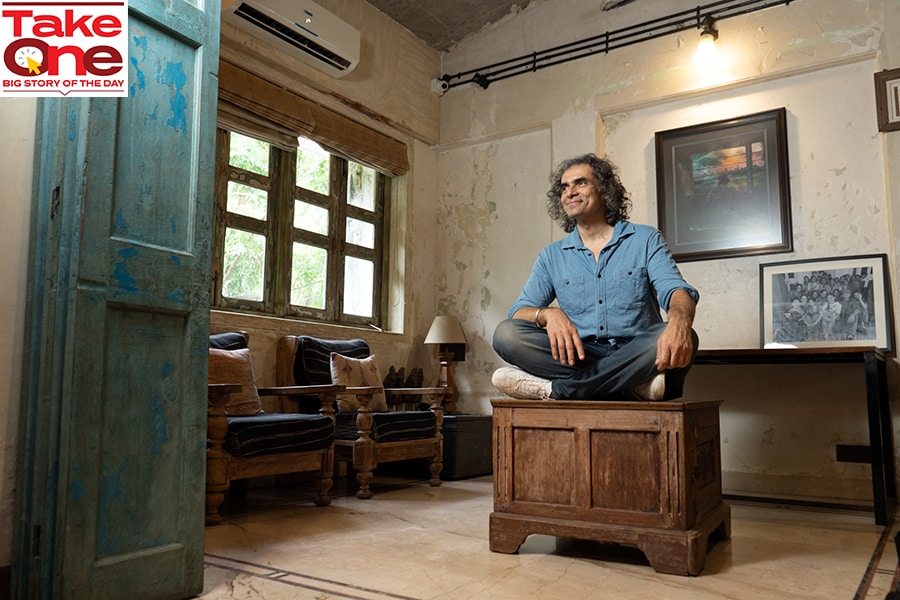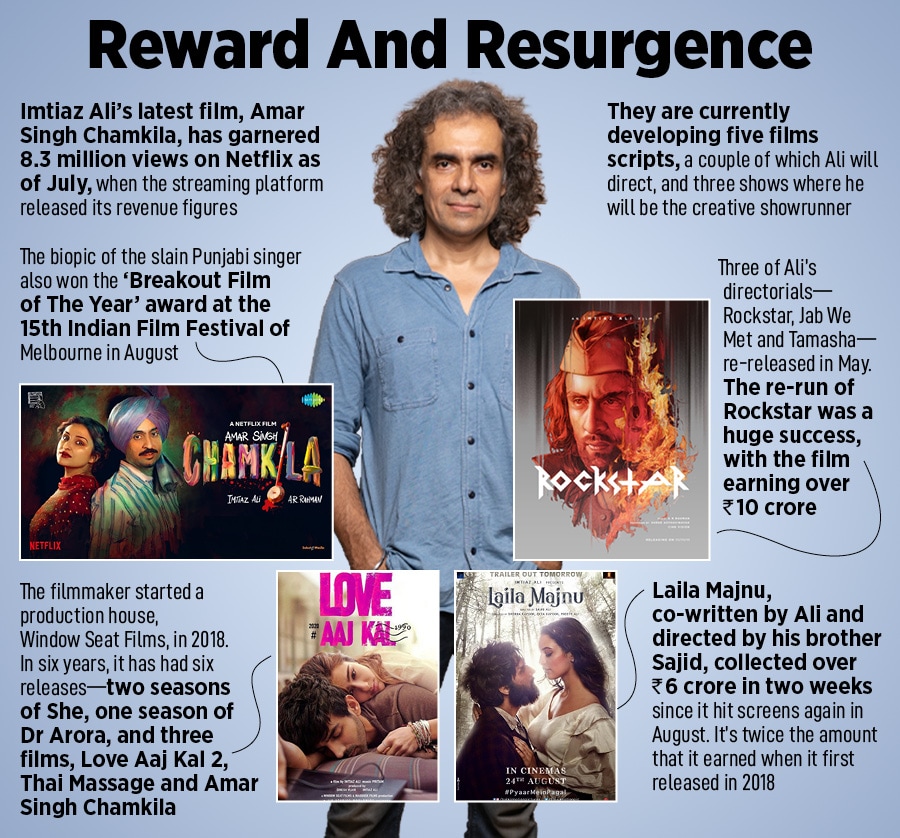
Imtiaz Ali: The master brewer of timeless tales
The filmmaker is overwhelmed with the success of his debut OTT directorial Amar Singh Chamkila that recently bagged the Breakout Film of The Year award at the Indian Film Festival of Melbourne. He's now looking forward to a storytelling adventure with his production house Window Seat Films that turned six this year
 Imtiaz Ali, Filmmaker, director, producer, and screenwriter
Image: Neha Mithbawkar for Forbes India
Imtiaz Ali, Filmmaker, director, producer, and screenwriter
Image: Neha Mithbawkar for Forbes India
Imtiaz Ali remembers music maestro AR Rahman calling him after the release of Amar Singh Chamkila and asking him where he had gone since the media and public were talking about his ‘comeback’ with his latest film. “Don’t mind the fact that people can be cruel and dismissive about your films… there have been seven or eight times when I have been written off. It has happened to the best of us,” the filmmaker recalls the Oscar-winning composer-singer telling him.
Amar Singh Chamkila, a biopic of the Punjabi singer-musician who was assassinated at 27 when he was at the zenith of his popularity, released on Netflix in April. Since then, the film has received unprecedented love and appreciation, making it one of the biggest hits for the streaming platform with 8.3 million views as of July, when Netflix released revenue figures for the second quarter. And the accolades continue to pour in. At the recent 15th Indian Film Festival of Melbourne in August, it won the ‘Breakout Film of The Year’ award.
“I didn’t have a parameter to my expectations. I didn’t have a perspective on what to expect, but yes, the response was overwhelming,” Ali tells Forbes India. He has every reason to feel jubilant. After all, the success of Amar Singh Chamkila—his debut OTT release as a filmmaker—comes after the box office failures of his last two directorials, Jab Harry Met Sejal (2017) and Love Aaj Kal 2 (2020). The 53-year-old, though, has a realistic take on the fate of films. “The junta [audience] is always right, that’s the way I’d like to think,” he says.

***





















